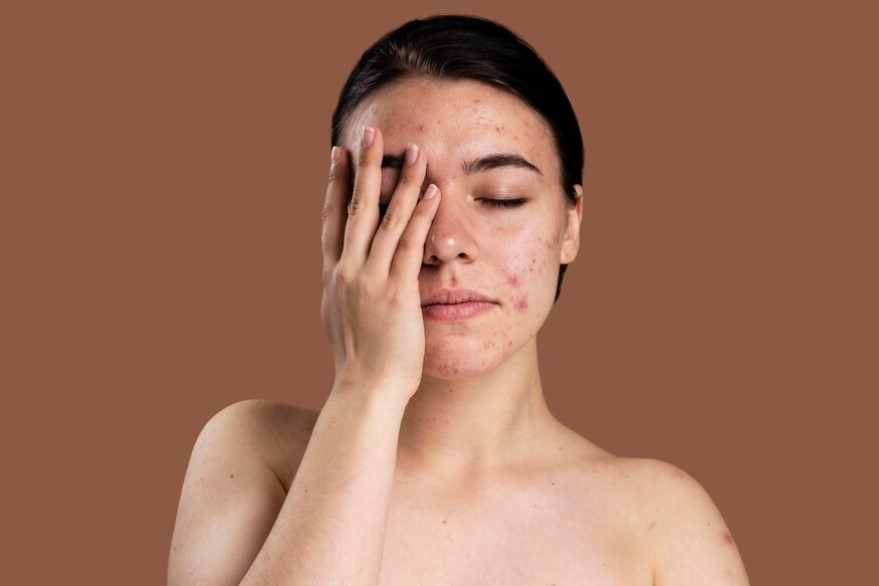Hyperpigmentation is a prevalent skin condition characterized by patches of skin that become darker than the surrounding areas. This condition occurs due to an excess production of melanin, the pigment responsible for skin color. Although hyperpigmentation doesn’t typically cause discomfort, it can lead to feelings of self-consciousness for those affected. Fortunately, various lifestyle changes and treatment options can help manage and reduce hyperpigmentation.
Hyperpigmentation is increasingly common in today’s society. It results in darker patches on the skin, which can vary in color from brown and black to gray and red. The term “hyper” signifies excess, while “pigment” relates to color, highlighting the condition’s essence.
These patches are often referred to as sunspots, dark spots, or liver spots, and they can appear on various body parts, including the face, hands, and shoulders.
Causes
The skin contains cells that produce melanin, which gives it color. When these cells are damaged or diseased, they may produce excessive amounts of melanin, leading to darker areas on the skin. Hyperpigmentation can arise from several factors, including:
- Genetics: A family history of freckles or similar conditions can predispose individuals to hyperpigmentation.
- Hormonal Changes: Fluctuations in hormones, particularly during pregnancy or puberty, can trigger hyperpigmentation.
- Skin Injury: Conditions like acne, wounds, or burns may lead to post-inflammatory hyperpigmentation.
- Medications: Certain medications, such as birth control pills, can increase sensitivity to light and contribute to hyperpigmentation.
- Vitamin Deficiencies: Lack of essential vitamins, such as folic acid and B12, can influence melanin production.
- Sun Exposure: Prolonged exposure to the sun can cause solar lentigines, commonly known as sunspots.
- Thyroid Issues: Some thyroid conditions may also lead to changes in skin pigmentation.
Symptoms
The primary symptom of hyperpigmentation is the appearance of darkened skin patches. Typically, there are no other symptoms associated with this condition. However, if you notice dark spots along with additional symptoms, it is advisable to consult a dermatologist in Delhi or your primary care physician.
Diagnosis
A dermatologist will follow several steps to diagnose hyperpigmentation, including:
- Medical History: They may inquire about your medical history, including the onset of dark patches and any medications you are currently taking.
- Physical Examination: A thorough examination of the affected areas will help in assessing the condition.
- Wood Lamp Examination: This specialized UV light can help visualize pigmentation changes more clearly.
- Blood Tests: These tests may evaluate thyroid function, iron levels, hormones, and vitamin status.
- Skin Biopsy: In some cases, a small skin sample may be taken to rule out any abnormal skin cells.
Treatment Options for Hyperpigmentation
The treatment for hyperpigmentation often depends on its underlying causes. Your skin doctor in Delhi may suggest various lifestyle changes and treatments:
- Sun Protection: Avoiding sun exposure is crucial. Using broad-spectrum sunscreen with an SPF of 30 or higher, wearing protective clothing, and seeking shade can prevent further darkening.
- Medication: Your dermatologist might recommend prescription or over-the-counter topical treatments, such as:
- Azelaic Acid
- Glycolic Acid
- Vitamin C or B3
- Skin Bleaching Agents
- Kojic Acid
- Professional Treatments: Additional treatment options include:
- Chemical Peels
- Laser Skin Resurfacing
- Cryotherapy
- Pigmented Lesion Laser Therapy
Preventing Hyperpigmentation
While it may not be completely preventable, certain measures can help minimize the risk of developing hyperpigmentation:
- Daily Sunscreen: Choose a broad-spectrum sunscreen with an SPF of 30 or higher to protect against UVA and UVB rays.
- Limit Sun Exposure: Avoid direct sun exposure during peak hours.
- Protective Clothing: Wear hats and clothing that shield your skin from sunlight.
Duration of Hyperpigmentation
Hyperpigmentation can be a persistent condition. Although treatment can help reduce the appearance of dark spots, it may take several months or even up to a year to see significant improvements. Additionally, new spots may develop if sun protection measures are not consistently followed.
Conclusion
Hyperpigmentation can be challenging to manage, but with the right treatment and consistent care, significant improvements are achievable. If you’re struggling with hyperpigmentation, consulting with a dermatologist in Delhi can help you develop a personalized treatment plan tailored to your skin type and needs.
For expert care and effective pigmentation treatment in Delhi, consider consulting Dr. Rashmi Sharma, one of the best dermatologists in Delhi. With her extensive experience and patient-focused approach, Dr. Sharma can guide you on the best strategies to address hyperpigmentation and enhance your skin’s appearance.

